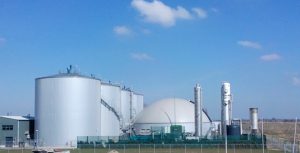28 Aug The impact of Covid-19 on the energy transition program of Suiker Unie
A temporary decrease in CO2 emission provides additional time to achieve energy transition targets
The Covid-19 pandemic has led to a start of an economic recession. Due to decreased supply and demand for products, production volumes in various industries and demand for transportation have decreased. These events resulting in a general decrease in demand for energy have caused a temporary decrease in global CO2 emissions. This means that extra time is available to achieve the set emission reduction targets. Also, more time is available for emerging green-technologies to develop and enter the market.
Drop in fossil fuel prices due to Covid-19 is competing with investments in renewable energy solutions
A drawback, however, is that the decrease in global energy demand also dramatically dropped the prices for fossil fuels. The current prices for fossil fuels causes investments in renewable energy to be non-competitive. It is clear that energy transition projects are not on the top of the priority list during the recession for most industries. In order to proceed with the energy transition program during the period of economic recession, it is necessary to have the right incentives for energy transition related investments, mainly for long-term perspectives. The available SDE subsidiary program in the Netherlands is an essential platform that provides financial support for energy transition projects. Therefore, delays and uncertainties in the development of the SDE program directly affects the progress of the energy transition program.
Competitive energy transition investments are still being realized
The energy transition program of Suiker Unie consists of projects related to energy savings and implementation of renewable energy. In general, profitable projects are proceeding, while non-profitable projects have been stopped or delayed. For example, Suiker Unie was able to invest and proceed building a solar farm near the production site in Puttershoek with the financial aid from the SDE subsidiary program. It is expected that the solar farm will be completed at the end of 2020. The solar farm will provide a total energy of ~21 MW for the production plant.
Non-competitive projects delayed/stopped
Suiker Unie also generates biogas from pulp utilizing digesters (figure 1). Generating biogas from pulp is an efficient way to gain additional value from by-products from the sugar production

Digester facility for biogas generation located in Dinteloord. Biogas is generated from pulp, a by product from sugar beet after sugar extraction. The facility yearly generates ~8.5 million Nm3 of biogas.
process. An expansion of the digester facility in Dinteloord was envisioned, however, due to recent changes in the market price for natural gas, generation of biogas became non-competitive and the project was stopped. Possibly an extension of the digester facility will be economically feasible in the future.
Another example of a project is the expansion of the multi-effect evaporation at the production site of Vierverlaten, which aims to reuse waste heat resulting in a more efficient heat balance of the sugar manufacturing process. This project is unfortunately delayed due to the current economic situation. A delay could have been prevented if the right incentives were available.
Timely realization of energy transition with the right incentives
Above examples show that it can be interesting for industry, even during an economic recession, to invest in energy transition projects. However, it is necessary to have the right incentives to make competitive investments. It is also required to timely adjust the conditions in subsidiary programs to match actual market conditions.



